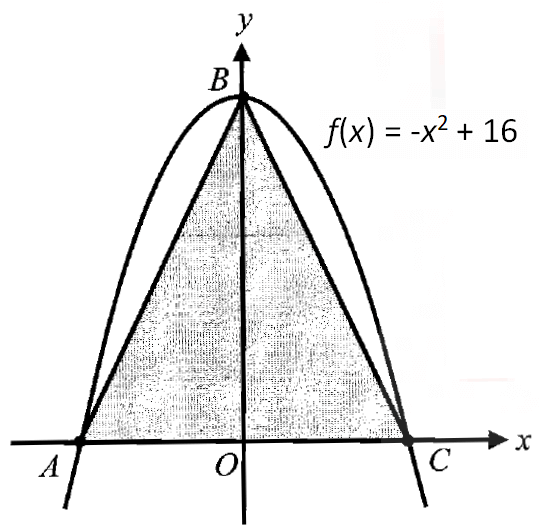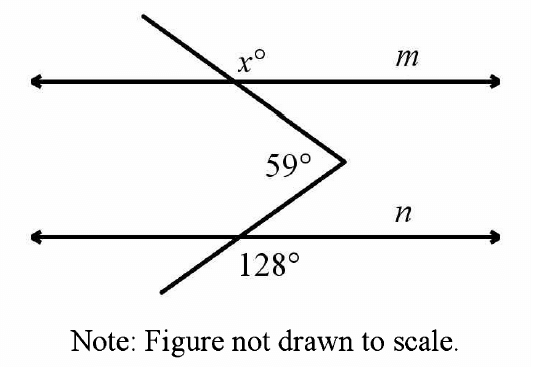EVALUATING EXPRESSIONS WITH EXPONENTS
Example 1 :
Evaluate :
(-1)4
Solution :
Order of operations (PEMDAS) dictates that parentheses take precedence.
Here, the exponent 4 is an even number. So, the negative sign inside the parentheses will become positive.
When 1 is multiplied by itself any number of times, the result will be 1.
More clearly,
(-1)4 = (-1) ⋅ (-1) (-1) ⋅ (-1)
(-1)4 = 1
So, the value of (-1)4 is 1.
Example 2 :
Evaluate :
(-1)5
Solution :
Order of operations (PEMDAS) dictates that parentheses take precedence.
Here, the exponent 5 is an odd number. So, the negative sign inside the parentheses will remain same.
When 1 is multiplied by itself any number of times, the result will be 1.
More clearly,
(-1)5 = (-1) ⋅ (-1) ⋅ (-1) ⋅ (-1) ⋅ (-1)
(-1)4 = -1
So, the value of (-1)5 is -1.
Example 3 :
Evaluate :
-(-3)3
Solution :
Order of operations (PEMDAS) dictates that parentheses take precedence.
So, we have
-[(-3)3] = -[(-3) ⋅ (-3) ⋅ (-3)]
-[(-3)3] = -[-27]
-[(-3)3] = 27
So, the value of (-3)3 is 27.
Example 4 :
Evaluate :
50
Solution :
Anything to the power zero is equal to 1.
So, we have
50 = 1
So, the value of 50 is 1.
Example 5 :
Evaluate :
-30
Solution :
Anything to the power zero is equal to 1.
So, we have
-30 = -1
So, the value of -30 is -1.
Example 6 :
Evaluate :
(-7)0
Solution :
Order of operations (PEMDAS) dictates that parentheses take precedence.
Anything to the power zero is equal to 1.
So, we have
(-7)0 = 1
So, the value of (-7)0 is -1.
Example 7 :
Evaluate :
5-3
Solution :
Using laws of exponents, we have
5-3 = 1/53
5-3 = 1/125
So, the value of 5-3 is 1/125.
Example 8 :
Evaluate :
23 ⋅ 32 ⋅ (-1)5
Solution :
In the above expression, first evaluate each term separately.
23 = 2 ⋅ 2 ⋅ 2 = 8
32 = 3 ⋅ 3 = 9
(-1)5 = (-1) ⋅ (-1) ⋅ (-1) ⋅ (-1) ⋅ (-1) = -1
Now, we have
23 ⋅ 32 ⋅ (-1)5 = 8 ⋅ 9 ⋅ (-1)
23 ⋅ 32 ⋅ (-1)5 = - 72
So, the value 23 ⋅ 32 ⋅ (-1)5 is -72.
Example 9 :
Evaluate :
(-1)4 ⋅ 33 ⋅ 22
Solution :
In the above expression, first evaluate each term separately.
(-1)4 = (-1) ⋅ (-1) ⋅ (-1) ⋅ (-1) = 1
33 = 3 ⋅ 3 ⋅ 3 = 27
22 = 2 ⋅ 2 = 4
Now, we have
(-1)4 ⋅ 33 ⋅ 22 = 1 ⋅ 27 ⋅ 4
(-1)4 ⋅ 33 ⋅ 22 = 108
So, the value (-1)4 ⋅ 33 ⋅ 22 is 108.
Example 10 :
If x2y3 = 10 and x3y2 = 8, then find the value of x5y5.
Solution :
x2y3 = 10 ----(1)
x3y2 = 8 ----(2)
Multiply (1) and (2) :
(1) ⋅ (2) ----> (x2y3) ⋅ (x3y2) = 10 ⋅ 8
x5y5 = 80
So, the value x5y5 is 80.
Kindly mail your feedback to v4formath@gmail.com
We always appreciate your feedback.
©All rights reserved. onlinemath4all.com
Recent Articles
-
Digital SAT Math Problems and Solutions (Part - 143)
Apr 13, 25 12:01 PM
Digital SAT Math Problems and Solutions (Part - 143) -
Quadratic Equation Problems with Solutions
Apr 12, 25 08:21 PM
Quadratic Equation Problems with Solutions -
Digital SAT Math Problems and Solutions (Part - 142)
Apr 11, 25 06:26 PM
Digital SAT Math Problems and Solutions (Part - 142)

